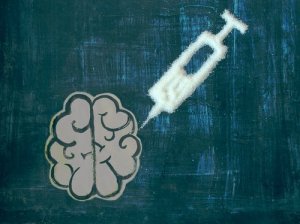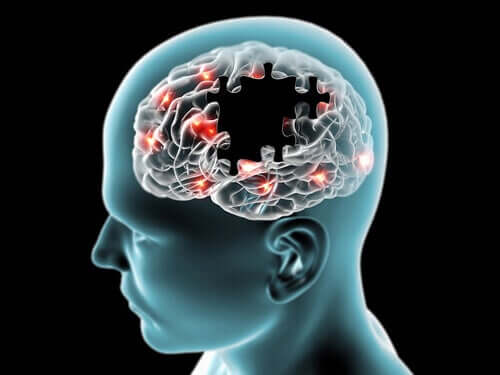Does Sugar Really Improve Mental Performance?


Written and verified by the nutritionist Saúl Sánchez Arias
Until recently, many people mistakenly believed that sugar improves mental performance. However, the latest studies call this claim into question. Now, scientists know that the body has very effective mechanisms to supply glucose to the brain, even without consuming sugar.
The brain relies on a continuous supply of glucose from the bloodstream to maintain proper function. Therefore, it competes with the rest of the body’s organs for glucose when its levels drop. If this happens, the following mechanisms occur:
- First, glucose is extracted from the blood.
- Second, the amount of glucose that the rest of the body’s cells receive is limited.
On the other hand, if blood sugar levels decrease due to a food consumption deficit, the body has other ways of obtaining this nutrient. The main mechanism for this is gluconeogenesis. It consists of the formation of glucose from proteins and fatty acids. Overall, it’s an effective mechanism that allows the body to maintain safe blood sugar levels under fasting conditions or when a person is not consuming enough carbohydrates.
You might like: Five Habits for Good Mental Health

Sugar consumption and memory
Some studies associate the administration of sugar with an improvement in short-term memory. This kind of consumption usually consists of drinking a sugary beverage and the results show that intense mental tasks respond well to glucose administration.
Until recently, experts argued that the brain works optimally with 25 grams of glucose circulating in the bloodstream, which is about the amount a banana contains. However, the latest articles conclude that people with better glucose tolerance have better memory scores.
This situation is essential in the case of people with diabetes, in which insulin resistance develops that does not allow glycemia to be well tolerated. Therefore, the body has very effective mechanisms capable of obtaining glucose from proteins and fatty acids to maintain blood sugar levels. In this way, the brain gets the right amount of glucose, ensuring effective mental performance.
On the other hand, studies have shown that hydration plays a big part in cognitive performance. Therefore, an individual that’s even the slightest bit dehydrated will get lower scores on skills related to memory, concentration, attention, etc.
You might like: 5 Tips to Control Sugar Cravings
Refined sugar: Worse than complex carbohydrates?
Some articles argue that the intake of refined sugar results in a short-term memory loss following consumption. Also, studies have shown that sugar intake can sometimes even lead to cognitive impairment and the development of complex diseases.
On the other hand, the incidence of ADHD is higher in adolescents with a diet rich in saturated fats and refined sugars, compared to those who carry out healthier diets.
Foods that improve mental performance
Although simple sugar can negatively affect cognitive functions, other nutrients can improve brain function. One example is caffeine in moderation, which serves as a natural stimulant and helps boost and maintain brain health.
Also, nitrites present in foods such as beets increase vasodilation and, therefore, blood flow to the brain. The main consequence of this is a greater contribution of nutrients to the brain and an improvement in cognitive performance.
Also, some vitamins such as vitamin C may have positive effects on mental performance and health. These vitamins can help prevent cognitive deterioration such as that seen in patients with Alzheimer’s disease.
So does sugar improve mental performance?
Glucose is the main fuel source for the brain. However, consuming sugary foods isn’t necessary to ensure proper brain function. The body has very efficient mechanisms that ensure that enough glucose gets to the brain to maintain brain functions.
In fact, consuming a lot of simple sugar can actually lead to a worsening of cognitive functions and the development of complex diseases. Thus, if you want to improve your mental performance and brain function, it is best to eat a healthy, balanced meal. Additionally, if you need a quick boost, you can eat foods rich in vitamin C and nitrites, for example.
All cited sources were thoroughly reviewed by our team to ensure their quality, reliability, currency, and validity. The bibliography of this article was considered reliable and of academic or scientific accuracy.
- Mergenthaler P., Lindauer U., Dienel GA., Meisel A., Sugar for the brain: the role of glucose in physiological and pathological brain function. Trends Neurosci, 2013. 36 (10): 587-97.
- McLellan TM., Caldwell JA., Lieberman HR., A review of caffeine’s on cognitive, physical and occupational performance. Neurosci Biobehav Rev, 2016. 71: 294-312.
This text is provided for informational purposes only and does not replace consultation with a professional. If in doubt, consult your specialist.









